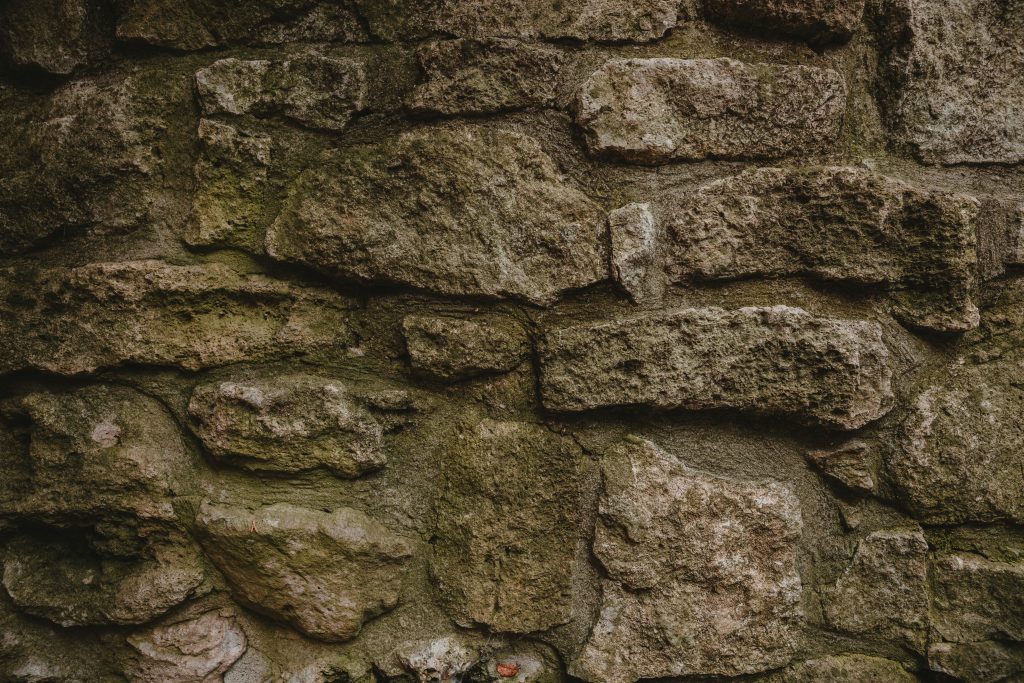In the last post, we considered the rich imagery found in Psalm 46 — imagery that poetically and persuasively calls the people of God to take shelter in the shadow of the Almighty when the storms of life rage hard. We saw that it was Psalm 46, in all its poetic and persuasive beauty, that inspired Martin Luther to pen his famous hymn A Mighty Fortress is our God, often referred to today as “The Battle Hymn of the Reformation”. While Luther’s own circumstances were unique to his day, the timeless truth found in Psalm 46 never becomes outdated: “The LORD of hosts is with us; the God of Jacob is our refuge” (Ps. 46:7, 11).
As fallen sinners in Adam, we are all refugees in a sin-cursed world — exiled from Eden, wandering through the wilderness. Psalm 46 is our open invitation to come out of the threatening wasteland and into a fortress of peace and safety, wherein the river of God’s delights and tabernacle of the Holy One stand unassailably secure — towering above all that threatens us in this world, as sure tokens of God’s protective care for His own. In this post, we will consider some of the idols of our own day that militate against the church’s powerful proclamation that true refuge is to be found in God alone.
The idols of earthly comfort and human progress have done much to blind us to the reality that ultimate control over our lives is an illusion. We tenaciously cling to the notion that control is something we possess. The Bible upholds self control as a beautiful fruit of the Spirit (Gal. 5:23). Idolatry, on the other hand, is a rotten work of the flesh (Gal. 5:20). A craving for ultimate control over the events of our lives veers into the lane of idolatry — not letting God be God. Only God can say: “I am the Lord, that is My name; and My glory I will not give to another, nor My praise to carved images. Behold, the former things have come to pass, and new things I declare; before they spring forth I tell you of them” (Isaiah 42:8-9). Yet how hard it is for God’s fallen image bearers to submit themselves to this truth! We tacitly assume that God will share some of that glory with us so that we don’t have to give up all control over our lives in this world.
Do we not, in our insatiable craving for control, hear echoes of the serpent’s deadly and deceptive prodding of Eve in the Garden of Eden? — “You will not surely die. For God knows that in the day you eat of it your eyes will be opened, and you will be like God, knowing good and evil.” (Gen 3:4-5). That desire to be like God — where we were not meant to be like God — became our ruin. And now the idols of earthly comfort and human progress appear all the more attractive, falsely advertising themselves as gods that can satisfy our heart’s deeply entrenched desire to have ultimate control over our lives in this world.
We must never forgot that idolatry is not merely the active worshipping of gods that are no gods at all. It is that. However, idolatry is just as much a failure to worship the true God for who He is. Our hearts were made to worship. When they are not worshipping the true God, they will inevitably seek out something to fill that vacuum. Oh, the need to keep Jesus’ warning in constant view: “No one can serve two masters; for either he will hate the one and love the other, or else he will be loyal to the one and despise the other” (Matthew 6:24). Yet the idols of earthly comfort and human progress are so persuasive in alluring the sinful human heart by a false offer of total control over our lives. But bad things eventually happen and this illusion is momentarily shattered. The car breaks down. The furnace stops working. We get that notice of impending layoffs. That cherished relationship sours. Our child is no longer walking with the Lord. The doctor’s office has called and wants us to come in for a face-to-face. You can fill in the blank.
And in His infinite mercy, God comes to His spellbound image bearers, toiling under the illusion that ultimate control over their lives is attainable, and gently says: “Be still, and know that I am God” (Psalm 46:10). Yes, it is that simple. The cure for the craving for control lies in simply letting God be God and you be you! It falls on God — and God alone — to “be exalted in the earth” (Psalm 46:10). It falls on you and I to “be still … and know” that He is God. As C. H. Spurgeon reminds us: “Either by terror or love God will subdue all hearts to himself”.
It was only in quietness and trust that the psalmist could exult in such a manner: “We will not fear, even though the earth be removed, and though the mountains be carried into the midst of the sea; though its waters roar and be troubled, though the mountains shake with its swelling” (Psalm 46:2-3). Planetary upheaval! Raging tsunamis! Mountain shaking earthquakes! How could the psalmist not fear such desolations? Was it cutting edge environmental studies? The development of greater and more sophisticated flood levies? Top of the line seismic detection technology? No, it was none of these things — things that are not bad in and of themselves. Nevertheless, the psalmist’s trust was in the God who is His people’s “refuge and strength” (Psalm 46:1). And the psalmist knew that whatever may happen to the people of God in this world, “God is in the midst of her, she shall not be moved; God shall help her, just at the break of dawn” (Psalm 46:5).
So what about you? Are you finding your only refuge and strength in God Himself? Or are you still clinging to the illusion that ultimate control over your life lies in your hands? Hear Spurgeon’s words once again: “Either by terror or love God will subdue all hearts to himself”. Let God subdue your heart to Himself by His love. Hear His open invitation to sin-sickened souls in this world who continue to desperately yet in vain hew out for themselves broken cisterns that can hold no water (cf. Jer 2:13): “Ho! Everyone who thirsts, come to the waters; and you who have no money, come, buy and eat. Yes, come, buy wine and milk without money and without price. Why do you spend money for what is not bread, and your wages for what does not satisfy? Listen carefully to Me, and eat what is good, and let your soul delight itself in abundance. Incline your ear, and come to Me. Hear, and your soul shall live” (Isaiah 55:1-3).
“Be still, and know that I am God” (Psalm 46:10). Yes, it is that simple. “We will not fear, even though the earth be removed, and though the mountains be carried into the midst of the sea; though its waters roar and be troubled, though the mountains shake with its swelling” (Psalm 46:2-3). Yes, even through such calamitous desolations! When Noah and his family entered the ark ahead of the catastrophic deluge, we read that “the Lord shut him in” (Gen. 7:16). It was Noah’s opportunity to hear God say “Be still, and know that I am God”. Oh happy place God’s servant was led to! Safety in the midst of the storm. The waters raged outside the ark, but there was a peace possessed by Noah that the perishing world knew nothing of. And this same offer of peace is extended to all of us who have fled to God for refuge. Let your God “shut you in” and say to your soul: “Be still, and know that I am God”.
What troubled waters might you be finding yourself in today? Is it the fear of disease and “the pestilence that stalks in darkness” (Ps. 91:6 ESV)? Take refuge in the shelter of the Most High, who says, “Be still, and know that I am God”. Is it the prospect of nuclear war and the tumultuous raging of nations? Come into the ark, and “be still, and know that I am God”. Is it discouragement that your Church is not growing as fast as you would like? “Be still, and know that I am God”. Is it the steady stream of tears shed over a wayward child? “Be still, and know that I am God”. Is it your fight against sin and the utter weakness of your own resources? “Be still, and know that I am God”. In all these things and more, we can choose to either trust in ourselves or trust in the One who holds Himself out to us as our “refuge and strength” — our “very present help in trouble”.
So how do you find that refuge? You look for a cross. And there you will find God’s provision for you in your desperate weakness — your “very present help in trouble”. Because it is here that your eyes are turned to the One who says to sin-burdened souls: “Come to Me, all you who labor and are heavy laden, and I will give you rest” (Mt. 11:28) and “In the world you will have tribulation; but be of good cheer, I have overcome the world” (John 16:33). God’s refuge is none other than His only-begotten Son! And until we glimpse Him, hanging from a cross, bearing the full weight of God’s wrath against our sin — our idolatrous, self-serving, control-craving sin — we will never flee to the only refuge that can protect us in this world, knowing that God is truly for us and not against us! As Spurgeon put it: “Either by terror or love God will subdue all hearts to himself”.
But we see more than a cross. We see a crown. A crown that graces the head of the One who has conquered sin and death and has now taken His seat “at the right hand of the Majesty on high” (Heb. 1:3). Yes, it is because of this that we can triumphantly say that “in all these things we are more than conquerors through Him who loved us … persuaded that neither death nor life, nor angels nor principalities nor powers, nor things present nor things to come, nor height nor depth, nor any other created thing, shall be able to separate us from the love of God which is in Christ Jesus our Lord” (Rom. 8:37-39).
And what gives us such confidence? The fact that it is Christ Jesus our Lord who is “upholding all things by the word of His power” (Heb. 1:3). It is Christ Jesus our Lord who has had “all things put under His feet” (Eph. 1:22). It is Christ Jesus our Lord who has been given by God the Father “to be head over all things” for the sake of the church (Eph. 1:22)! And the “all things” over which the Son of God has been placed really means all things! Yes. Planetary upheaval. Raging tsunamis. Mountain shaking earthquakes. Infectious viruses. Nuclear warfare. The growth of your Church. That wayward child. Your own fight against sin. All things means all things.
So in light of these things, what could be more comforting and reassuring that knowing that “God is our refuge and strength, a very present help in trouble”? What could be more powerful in crushing our lifeless idols to the ground than hearing the living voice of the living God say to our souls, “Be still, and know that I am God … I will be exalted among the nations, I will be exalted in the earth!”? And what could be more glorious than knowing that undergirding the Almighty God’s promise to be His people’s refuge and strength is the amazing truth that “God demonstrates His own love toward us, in that while we were still sinners, Christ died for us” (Rom. 5:8)? The apostle Paul goes on to rhetorically ask the most precious rhetorically-asked question that man has ever uttered: “He who did not spare His own Son, but delivered Him up for us all, how shall He not with Him also freely give us all things?” (Rom. 8:32).
So, in the words of the apostle John — “We know that we are of God, and the whole world lies under the sway of the wicked one. And we know that the Son of God has come and has given us an understanding, that we may know Him who is true; and we are in Him who is true, in His Son Jesus Christ. This is the true God and eternal life. Little children, keep yourselves from idols” (1 John 5:19-21). And how can we keep ourselves from the soul-destroying, God-dishonouring idols of earthly comfort and human progress, that feed our insatiable lust for control over our lives? We flee to Jesus Christ, knowing full well that “Blessed are all who take refuge in him” (Ps. 2:12 ESV).
By Pastor Dan (January 2020)
*Unless otherwise indicated, all Scripture quotations taken from the New King James Version (NKJV). Copyright 1982 by Thomas Nelson, Inc. Used by permission. All rights reserved.
*Scripture quotations marked (ESV) are from The ESV Bible (The Holy Bible, English Standard Version), copyright 2001 by Crossway, a publishing ministry of Good News Publishers. Used by permission. All rights reserved.
*C. H. Spurgeon citation taken from The Treasury of David: Classic Reflections on the Wisdom of the Psalms Vol. 1 (Peabody, MA: Hendrickson Publishers, 2011 reprint), 343.


